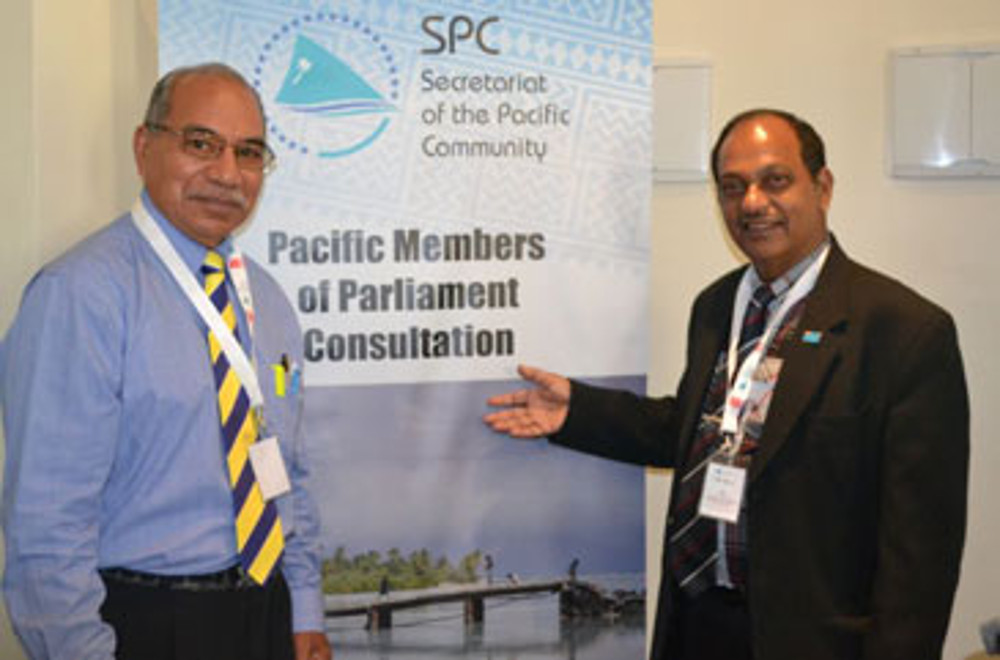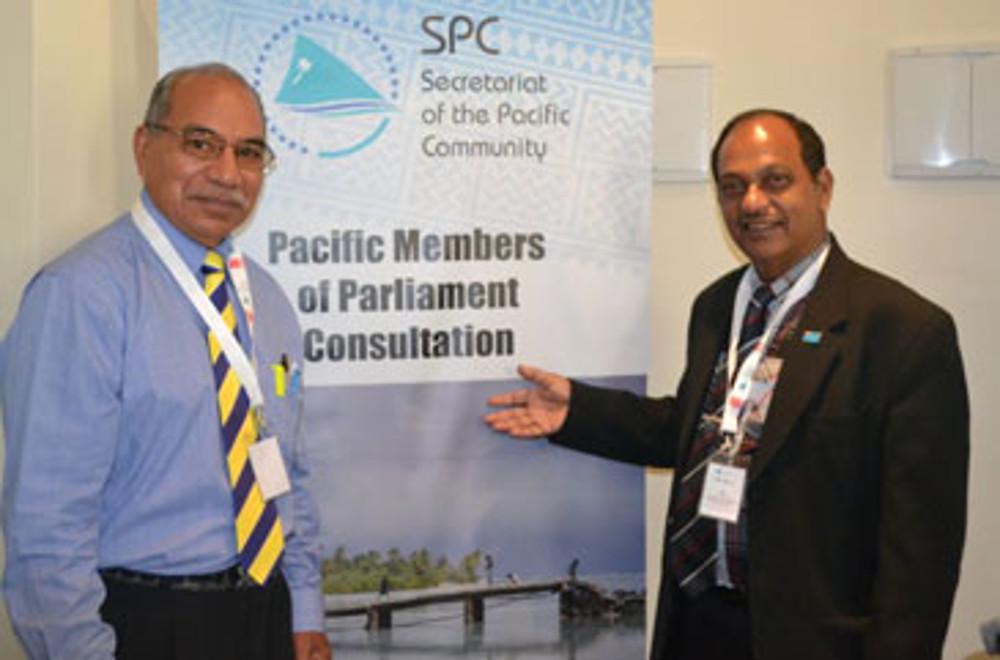
Parliamentarians from 11 Pacific Island countries were reminded today how embracing principles of human rights - such as transparency, accountability, non-discrimination and participation - in parliamentary systems will promote good governance and result in improved development outcomes for the region.
The 23 members of parliament are in Nadi today attending the first day of a regional human rights consultation to share their experiences and exchange information on current and emerging human rights issues in the region.
Organised by the Secretariat of the Pacific Community’s Regional Rights Resource Team (RRRT), the consultation with the theme of ‘Human Rights for Good Governance’ aims to explore and promote the integration of human rights into parliamentary systems to promote good governance.
Keynote speaker at the opening ceremony, Honourable Dr Pita Sharples, Māori academic and former Politician who was co-leader of the Māori Party and Minister of Māori Affairs in New Zealand, highlighted the important linkages between cultural values, human rights and development.
'Human rights will only be achieved when we value our culture and embrace its many values that are linked to the principles of human rights. We need to protect our culture and work with those values for the benefit of our people,' Dr Sharples said.
Fiji Member of Parliament, Honourable Salote Radrodro, said she welcomes the opportunity to be part of the consultation on human rights processes, as human rights hold the key to true democracy.
Honourable Member of Parliament for Kiribati, Ieremia Tabai, sees the consultation as a space and time to reflect on what 'we have done for the people we represent and how we can help them live a better life where their rights are realised.'
Significant and emerging human rights issues that will be discussed during the consultation include sexual and gender based violence, human rights and climate change, disability inclusiveness and non-communicable diseases (NCDs). The consultation will also explain the processes for ratifying international human rights conventions in Pacific Island countries, and the participation of countries in the UN Universal Periodic Review and other international human rights mechanisms.
The human rights consultation was the forum chosen for the launch of The Big Nine publication – an important reference for judges, magistrates, legal practitioners and law students across the Pacific.
'It is a privilege to launch this inspiring publication. It outlines the nine conventions we have been talking about during this consultation and will be a great tool for us to use in our work,' Dr Sharples, said.
The publication, which is online, is a one-stop-shop for international human conventions and other related documents. It will also be useful for human rights advocates, civil society representatives and policy-makers who seek to draw on international human rights law as a tool for initiating change in governance, policy and legislation, as well as in traditional and cultural practices in their own countries.
The Big Nine is the third volume of this series, after The Big Eight and The Big Seven, which were also published by RRRT.
SPC's human rights programme, RRRT, facilitates periodic consultations for members of parliament with the purpose of advancing human rights-compliant legislative change.
SPC, through RRRT, works to build a culture of human rights, and assists nation states to commit to, and observe, international human rights standards. SPC RRRT is grateful to the Australian Government for the funding of this event through Australian Aid.
For more information, contact Jilda Shem, SPC RRRT Communications Officer on +679 330 5994 or email [email protected]
